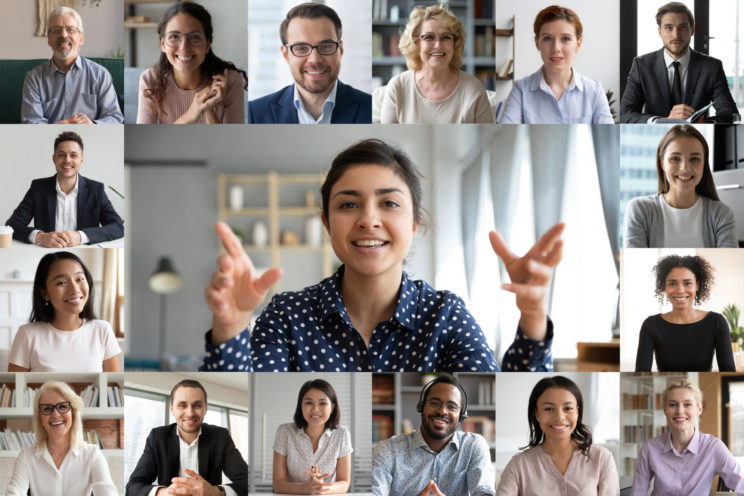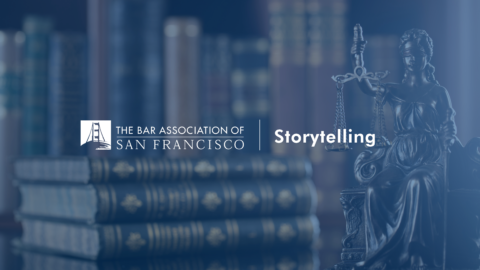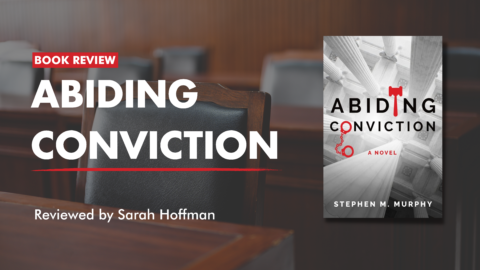When the San Francisco Bay Area issued its shelter-in-place order on March 16, 2020, industries across the region scrambled to adapt. Restaurant owners transitioned to a takeout-only model, merchants boarded up their storefronts, and San Francisco’s public transportation system almost completely shut down. The pandemic has affected everyone’s life in some way, but for those studying or practicing law, a unique set of challenges has arisen.
Classes have moved online, job fairs have been canceled, and the in-person July 2020 California Bar exam is delayed to September, where students will take it online. In the midst of all of this are concerns about burgeoning lawyers of color. In an industry struggling to increase diversity, will the latest barriers to education and careers inhibit diversity in the field of law?
Wendy Hernandez, a 3L at UC Hastings College of the Law, says that her studies were profoundly impacted by the shelter-in-place order. A native of Los Angeles, with “proud roots in Honduras,” Hernandez was the first in her family to graduate high school, college, and law school. This spring the end was in sight: Hernandez was set to graduate from UC Hastings, and take the California Bar exam in July, before beginning her dream career as a nonprofit corporate counsel.
But when the shelter-in-place order went into effect, Hernandez’s carefully-laid-out plan was sent into disarray. “So many things were lost: the weekly mediations I co-facilitated at the San Francisco Superior Court were canceled, the sense of collegiality in my courses vanished and were replaced with my peers and professors on my laptop screen, and the opportunity to celebrate my law school graduation in community and with family has been postponed to an undetermined date,” she says.
On top of all that, her mother lost her job due to the coronavirus, adding significant financial stress. The delay in the bar exam means that Hernandez is two months further away from being able to practice law, pay off any accrued debt, and help support her family. All of this had made preparing for the bar even trickier.
“I imagine that even a traditional law student has found it extremely difficult and distracting to focus on bar studies while we face a global pandemic and a much-needed uprising demanding racial equity,” Hernandez says.
Bar exam delays and online classes are creating challenges for law students, but new lawyers also face challenges. Employment lawyer Donovan Bonner recently switched law firms and states, moving from Barran Liebman in Oregon to Coblentz Patch Duffy & Bass in California. It was a difficult move; Bonner enjoyed Barran Liebman, which hired him straight after he graduated from the University of Oregon’s School of Law in 2017. But his family is based in California, and he missed the state’s diversity.
“In my firm, I was the only African American,” he explains. “Any room that I walked in—if it was an attorneys’ get-together, or a happy hour, or a dinner —I could count on my two hands how many African-American attorneys were in the room. Usually, I’d be the only one.”
In normal times, the transition from one firm to another would be tricky enough, but the pandemic made it worse. Bonner gave notice and had to clean out his desk alone, in an empty office. There was no goodbye party. And then the country slid into an economic collapse.
“I was a little panicked,” Bonner says. “I was leaving a job during a pandemic when people were starting to get laid off. I was worried I was going to be the first person on the chopping block at my new job. I was like ‘should I retract my resignation?’ It brought me a lot of anxiety. I was like ‘am I going to have to put my loans on hold, am I going to have to put my life on hold if I move and then get laid off?’”
Luckily, Coblentz Patch Duffy & Bass anticipated his concerns and confirmed that his job was secure. Now, Bonner is faced with the challenge of making an impression as the new guy in a company where he hasn’t met the vast majority of the staff.
“I went from a twenty-two-attorney firm to one with over a hundred employees,” he says. “It’s hard to make a name for yourself. My work speaks for itself, but they don’t get to see my personality, how I conduct myself around the office. There are a lot of factors I can check off the list, but I can’t do it over Zoom calls.”
In the wake of the pandemic, the way law is being practiced, too, has shifted. Rukayatu (Ruky) Tijani is the founder and CEO of Firm for the Culture, where she helps social entrepreneurs trademark their brands. The company has always run itself virtually, so the stay-at-home order didn’t have a massive impact on day-to-day operations with paying clients. But Tijani works in a one-to-one model: for every trademark client she takes on, she turns around and offers free- and low-cost legal education to someone else. Maintaining that model has required some creativity; in-person events and seminars are now held over Zoom or conducted through webinars. The upside of the shift to an online-only business is that her team has been able to spend more time reaching new communities, and the company has seen its visibility grow as a result.
But the outbreak of COVID-19 carries more weight for Tijani than just how to adapt her company. It’s an opportunity, she says, to innovate and think outside the box. And in order to do that successfully, a diverse field of lawyers is needed.
“The pandemic is forcing the legal field — as a whole — to assess the ways it has traditionally served law students, lawyers, legal officers, and the public at large,” Tijani says. “From emergency orders requiring the release of prisoners due to COVID-19, to courthouse judges and officers racking their brains in figuring out whether or how to keep the courtrooms open, the legal field is slowly but surely realizing a diversity of viewpoints and backgrounds is absolutely crucial if we are to remain a relevant institution in our society today.”
Bonner, too, thinks that the current climate of 2020 could have a positive impact on the future of law — but not necessarily in relation to the pandemic. As hundreds of thousands of people around the country march for civil rights in the wake of George Floyd’s death, he hopes that there will be a rise in people of color pursuing careers in law.
“Black families have been laid off during this pandemic,” he says, noting that it’s not an easy time to take on debt. But “on the flip side, with everything that’s happening in the world, there may be a rush of people of color applying to law school. That would be an exciting outcome.”
For Hernandez, there’s still a battle ahead. The bar exam in September looms on the horizon, and the pressure to represent her community is high. In the U.S., Latina lawyers only comprise 1.4 percent of the legal profession. At the same time, Latinx people are the second-most incarcerated population in the country. The fight for diversity in the field is far from over, but its importance is only becoming more obvious.
“Lawyers are the warriors with the pen that can challenge inequality in courts, assist nonprofits and foundations trying to right the wrongs and downfalls of society, and rewrite the laws that have oppressed the same communities for centuries, but our profession can’t do so diligently without diversity,” Hernandez says. “It’s not only important to have a diverse array of lawyers, it’s urgently necessary.”
Nuala Bishari is an award-winning journalist based in San Francisco, where she covers politics, public health, homelessness, and crime. Her work can be found in SF Weekly, the San Francisco Examiner, and In These Times.




